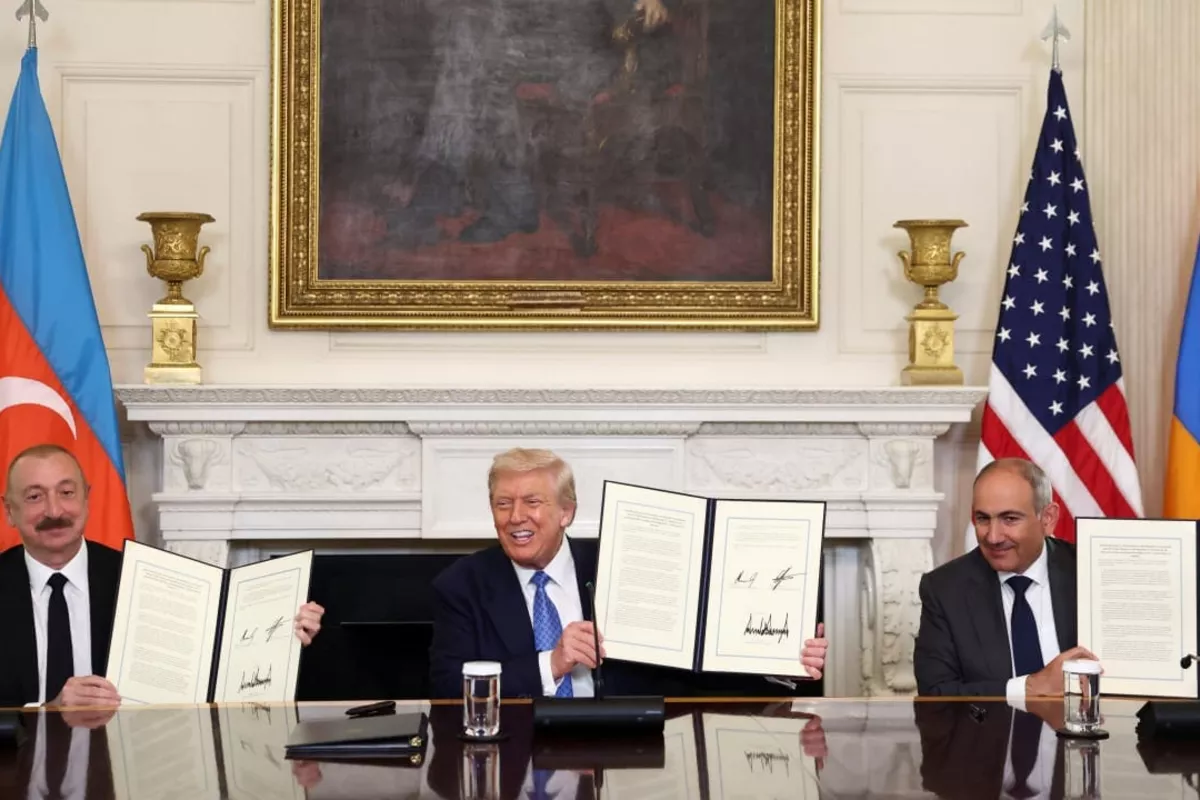
In his article, Israeli scholar of Arab culture and lecturer at Bar-Ilan University Mordechai Kedar has described that the Trump Route for International Peace and Prosperity (TRIPP) presents Washington with a strategic opportunity to curb Russian and Iranian influence in the South Caucasus, positioning the US as a key driver of stability, economic growth, and regional cooperation in a historically volatile yet geopolitically crucial corridor.
On August 8, in Washington, a historic peace agreement was signed between Armenia and Azerbaijan under US mediation, The Caspian Post informs via Jerusalem Post.
At the heart of this agreement lies the Trump Route for International Peace and Prosperity, built along the Zangezur Corridor. Through TRIPP, the United States secured a 99-year development right to a special transport corridor on Armenian territory, a move with the potential to reshape the geopolitical balance in the region.
TRIPP covers a 32-43 km. stretch of the Zangezur Corridor, linking mainland Azerbaijan to its Nakhchivan exclave. The land remains under Armenian sovereignty but is leased to the United States under a 99-year sublease agreement, with operations conducted under Armenian law. The corridor will host multi-modal infrastructure, including railway lines, oil and gas pipelines, fiber-optic cables, and roads. TRIPP gives Washington a strategic foothold in the South Caucasus, counterbalancing Russian and Iranian influence.
Share on social media